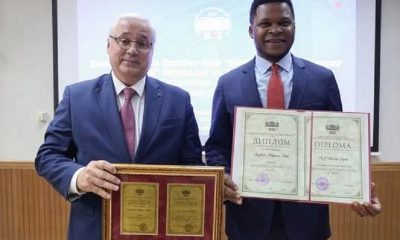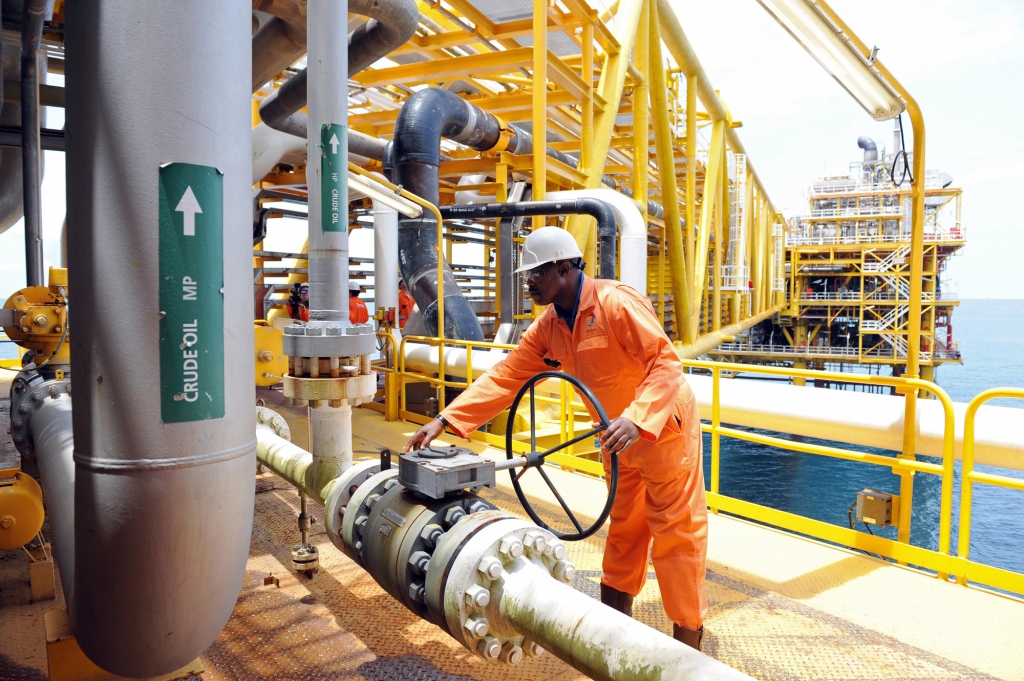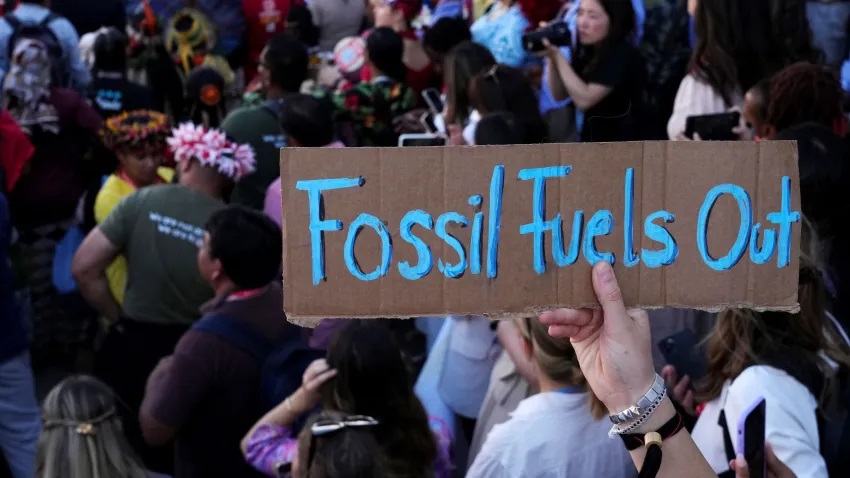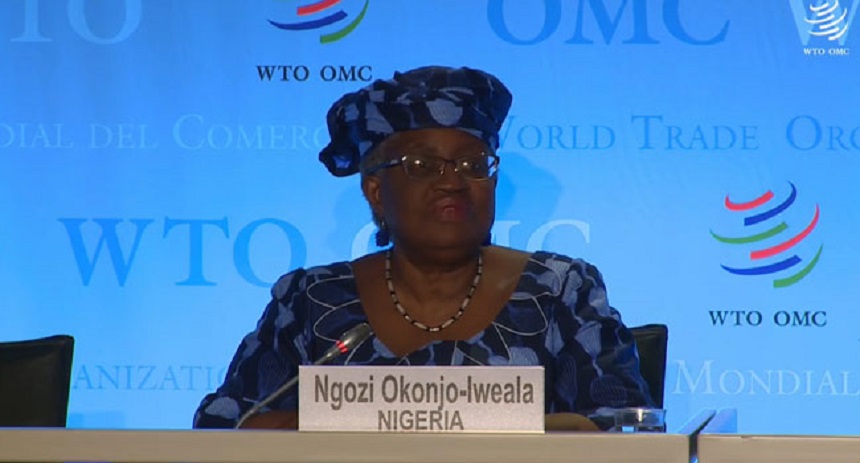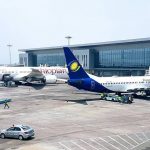General
Africa Needs Technological Expertise to Unlock Full Potential of Energy Resources—Ayuk
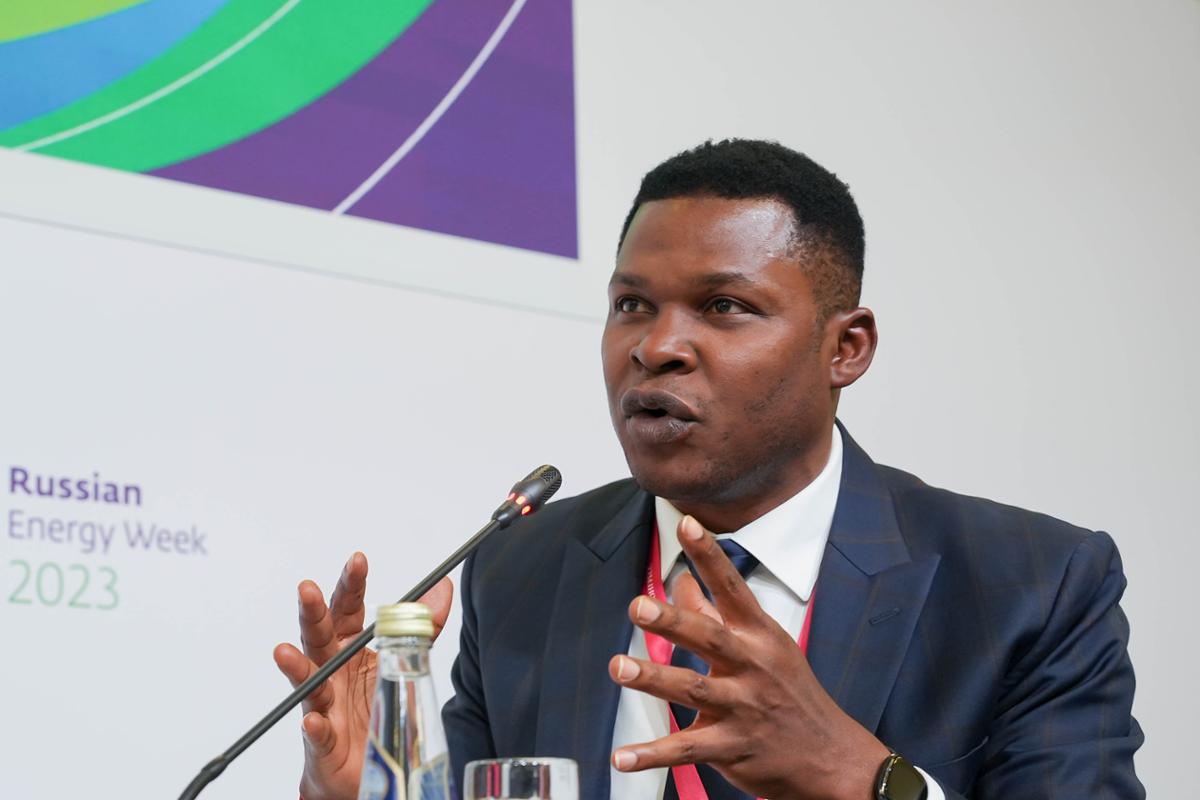
By Kestér Kenn Klomegâh
The Russian Energy Week International Forum is a key global platform for discussing current trends in the development of the modern energy sector. This event is traditionally held at the highest level, featuring the participation of leaders from the largest companies in the energy industry. In 2023, the forum attracted over 3,000 participants from more than 80 foreign countries.
On the sidelines of the forum, the Executive Chairman of the South Africa-based African Energy Chamber, Mr NJ Ayuk, acknowledged in an exclusive interview that Africa is developing as the fastest-growing energy market in the world. That, however, substantial investment and infrastructure development are required to realize this market potential.
In this interview, NJ Ayuk further explained the necessary steps African countries are adopting to ensure sustainable energy development, how the activities of Russian companies fit into this context, as well as existing challenges and financial support measures for projects in the energy sector across Africa. Here are the excerpts of the discussion:
After participating in the Russian Energy Week in mid-October, what are your objective views (especially during the special Russia-Africa energy sessions) about exploring business and investment in the energy sector with Russia?
There lies significant opportunities for both bilateral and multilateral cooperation between Russia and African countries. Russia represents the third largest oil producer worldwide and has effectively utilized its substantial gas reserves for the development of its economy. At the same time, the country is exploring renewable energy solutions and is looking at expanding its footprint in other markets worldwide.
With substantial expertise and resources in various energy domains, lessons learnt by Russia will be highly strategic for emerging oil and gas producers in Africa. And already, there is strong interest by both sides to foster strong ties and partnerships, evident during the Russian Energy Week this October. Russian companies such as Gazprom – which organized an event with the African Energy Chamber this year in South Africa – represent ‘global energy companies’, and as such are eager to play a greater role in investing and developing international markets. Gazprom has vast expertise is all segments of the value chain. The same can be said for Russia’s state-owned Rosatom. Africa represents both a strategic and highly attractive market in this regard. With over 125 billion barrels of proven oil reserves, 620 trillion cubic feet of natural gas and unparalleled solar, wind and hydro potential, the continent has all the ingredients to become a major global player.
What Africa needs to unlock the full potential of its energy resources is investment and technological expertise. Russia offers both. Now, what is left is for Africa to improve its business environment and prioritize engagement with its East European partner.
By the way, how do you estimate Russia’s engagement in the energy sector across Africa? What has been achieved over the past few years in Africa?
Russia’s engagement with Africa has been gradually growing over the years and we see this predominantly in the energy sector. For years, there have been strong trade and cooperative ties with countries such as South Africa, Morocco, Egypt, Algeria and many more, primarily in the food, machinery and chemical product industries. However, energy cooperation has presented newfound opportunities for both Russia and the African continent. Changes in global supply-demand dynamics, coupled with energy transition impacts, have led to a new focus placed on the strategic Russia-Africa partnership.
In recent years, Russian companies have advanced their engagement with Africa, with several agreements signed across various segments of the value chain. While historical ties have been largely trade-based, these agreements showcase a commitment by the country to expand its technological expertise worldwide. In the nuclear industry, for example, Russia’s Rosatom has signed a wave of agreements with burgeoning nuclear power producers in Africa. These include memoranda of understanding signed with South Africa in 2014 and 2023; Rwanda in 2019; Burkina Faso in October 2023; Burundi in July 2023; and Mali in October 2023. Additional agreements were signed with Zimbabwe and Uganda. And while oil and gas engagement has been minimal to date, going forward, a shift in priorities is expected to see Russia-African cooperation rapidly expand.
Do you think Russia lags in supporting Africa with energy compared to other external players such as China? Can ‘energy mix’ help to drive Africa’s industrialization and economic growth?
It is not about comparing support but rather about exploring future engagement and partnerships. Russia has been a strong partner for Africa for many years and will be an important part of Africa’s energy future. Russia is looking at playing a much larger role in Africa, going further than operating as a project developer. The country’s efforts to share insights, expertise and technology will represent a key driver of Africa’s future energy mix, which in itself is an important feature for alleviating energy poverty and industrializing the continent. Africa is promoting a diverse, inclusive energy mix, one in which oil, gas and renewable energy play a central role. Russia has been highly successful in this area, with natural gas and nuclear making up a significant portion of its energy matrix. In the same sense, African countries have all the resources needed to implement a diverse energy mix, and Russian support will be strategic in achieving this objective.
Is Russia participating in the formation of the proposed African Energy Bank? And finally what potentials are there to develop this sphere of energy business, especially with the heightening dynamics of the global situation?
The African Energy Bank is an initiative spearheaded by the African Petroleum Producers Organization and the African Export-Import Bank that aims to significantly improve access to financing for African oil and gas projects. The bank is an Africa-led energy transition strategy that takes into account Africa’s need for oil and gas. Support from major players such as Russia will be critical, strengthening the bank’s capacity to finance a new future of hydrocarbon development in Africa. The changing global energy situation calls for the establishment of an institution of this nature. Africa has long relied on foreign finance to develop large-scale energy projects. From oil to natural gas to power and infrastructure, the continent is faced with navigating the complexities of global market trends. The establishment of the bank aims to counter this reliance, offering an alternative for project developers, countries and companies seeking finance.
General
Minister Advocates Coordinated, Trust-Driven Government Communication
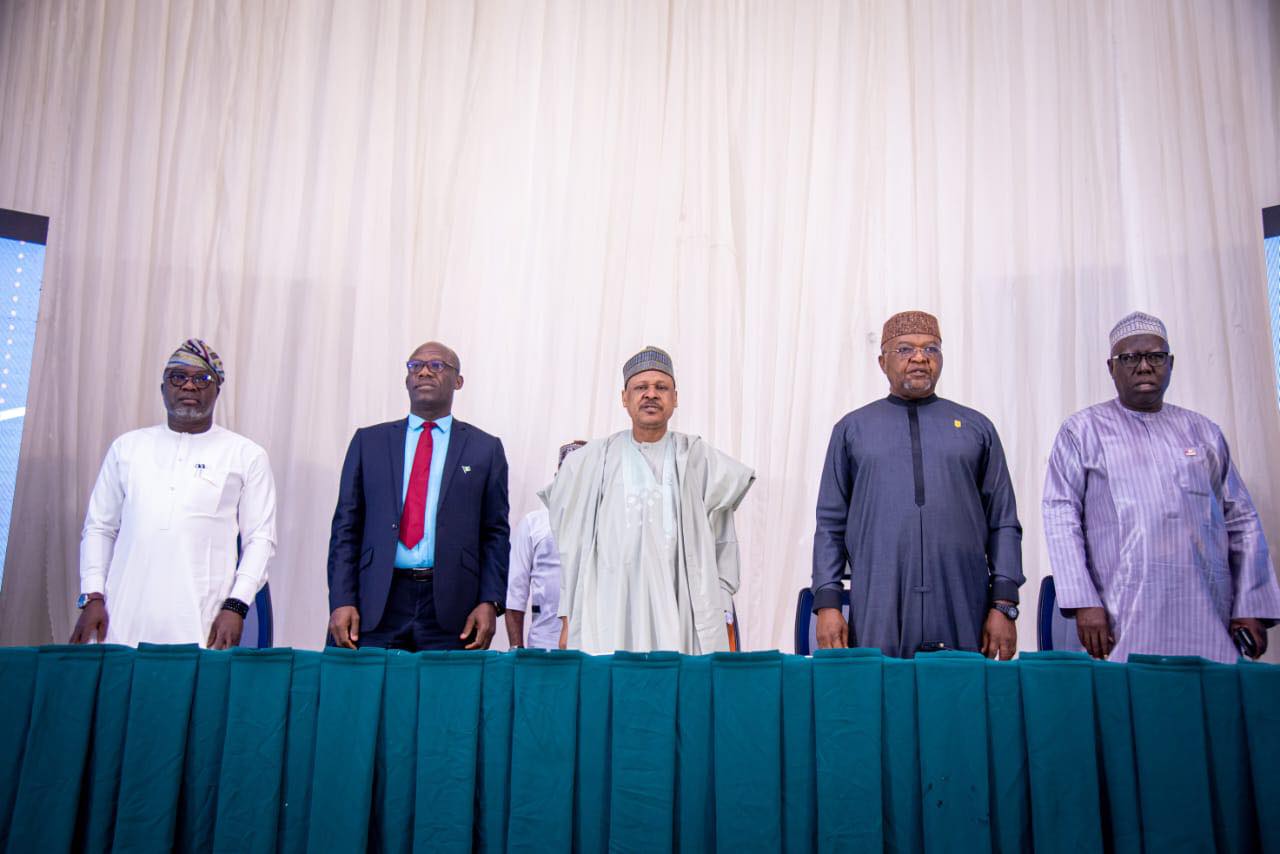
By Aduragbemi Omiyale
The Minister of Information and National Orientation, Mr Mohammed Idris, has emphasised that unified government messaging remains very critical to restoring public trust, especially in delivering the Renewed Hope Agenda of President Bola Tinubu.
He said this on Thursday in Abuja at an interactive session with Directors of Information and Resident Information Officers (RIOs) on grade level 14-17, deployed across Ministries, Departments and Agencies (MDAs).
The event, according to a statement issued on Friday by the Director Public Relations and Protocol of the ministry, Mr Suleiman Haruna, was themed Aligning Public Information with the Renewed Hope Agenda: Rebuilding Trust Through Effective, Transparent Communication.
The Minister noted that government officials must adopt a unified, coordinated, and trust-driven approach to government communication.
He posited that public trust remains the most valuable asset of government communication, stressing that information officers must be guided by honesty, credibility, and consistency in their work.
“Public trust is our most important capital. Once credibility is lost, no amount of messaging can fix it,” the Minister said, warning that fragmented messaging and parallel communication channels weaken government credibility and confuse citizens, insisting that the government must speak with a single, clear, and consistent voice.
“We are one government serving one national interest, and our communication must reflect that unity,” he said.
Mr Idris urged Resident Information Officers to see themselves as active partners within their host MDAs rather than passive observers, encouraging them to engage proactively with Ministers, Permanent Secretaries, and agency leadership, noting that professionalism, relevance, and initiative are key to earning trust and influence.
Addressing the growing pressure of misinformation and the speed of digital media, the founder of Blueprint Newspaper stressed the importance of timely and accurate communication, noting that delays often create space for false narratives. While reaffirming the federal government’s commitment to freedom of expression, he said such freedom must be exercised responsibly.
The Minister also outlined steps being taken to strengthen professionalism within the information cadre, including mandatory periodic reporting, improved deployment processes, continuous training, and stronger institutional support. He disclosed that the Federal Government has begun restoring the National Institute of Public Information to boost capacity building for public communicators.
He called for teamwork and mutual respect, reminding participants that they are central to the projection of government policies and achievements and that they must align their work with the priorities of the Renewed Hope Agenda.
General
Senate Forms Seven-Man Committee to Harmonise Electoral Act Amendment Bill
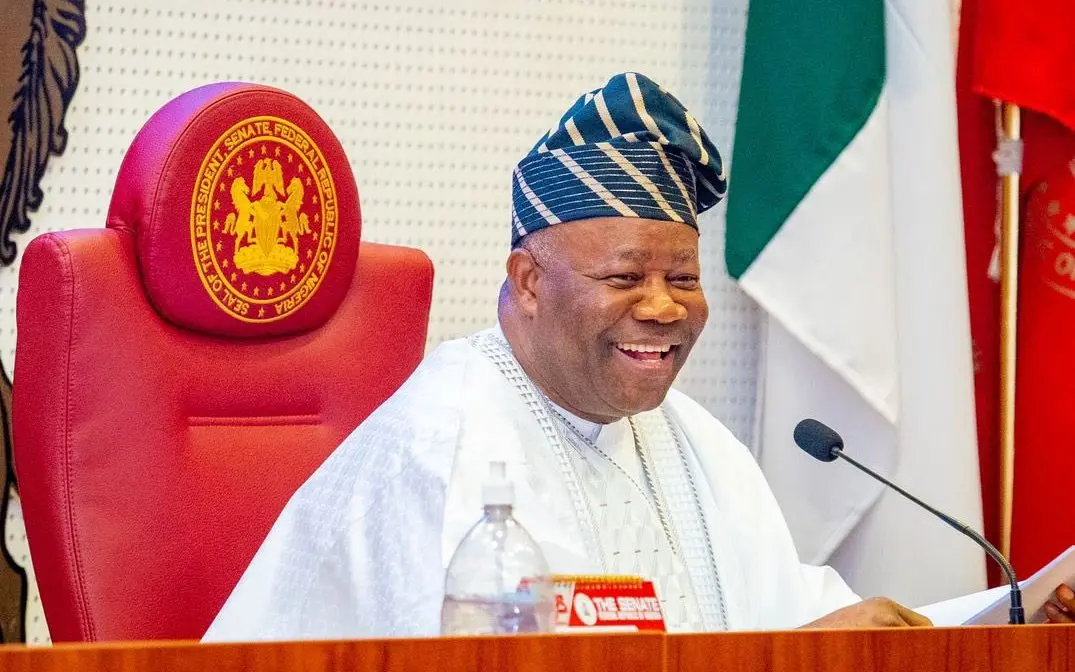
By Adedapo Adesanya
The Senate has constituted a seven-man committee to harmonise contributions and opinions on the Electoral Act Amendment Bill, 2026, with a mandate to present a consolidated report to the chamber next Tuesday.
The decision followed over two hours of consideration of the bill’s provisions during a closed-door session on Thursday.
The committee is chaired by the Chairman of the Senate Committee on Judiciary, Human Rights and Legal Matters, Mr Niyi Adegbomore.
Other members are Senators Adamu Aliero, Aminu Tambuwal, Adams Oshiomhole, Danjuma Goje, Tony Nwoye, and Titus Zam.
The group has three days to conclude its assignment and submit its report for consideration at the next plenary session scheduled for next week.
The Senate on Thursday commenced consideration of the Electoral Act 2022 (Repeal and Re-enactment) Bill 2026, moving into a closed-door session to review documents submitted by the Chairman of the Senate Committee on Electoral Matters, Mr Simon Lalong.
The Electoral Act (Repeal and Enactment) Bill, 2025 would expand voter participation, safeguard against electoral fraud, and strengthen institutional capacity of the Independent National Electoral Commission (INEC).
The closed session was convened to allow lawmakers to thoroughly examine the proposed amendments and supporting documents before engaging in further legislative debate on the bill.
This development comes after the upper chamber deferred consideration of the bill on Wednesday, giving lawmakers time to prepare for a detailed review.
Although the House of Representatives has already passed the bill, Senate President Senator Godswill Akpabio underscored the need for thorough scrutiny, given the bill’s implications for the nation’s electoral process.
“This is a very important bill, especially as it is election time. We must take our time to ensure justice is done to all, so that we do not end up at the tribunal,” he said.
According to the committee’s findings, a clause-by-clause analysis of the bill indicates that enacting the legislation would leave Nigerians with an enduring legacy of electoral integrity, enhance transparency, and boost public confidence.
The bill contains more than 20 key innovations distinguishing it from previous electoral frameworks, including provisions recognising the voting rights of prisoners and mandating INEC to register eligible inmates in correctional facilities nationwide.
It also prescribes sanctions for vote-buying ranging from a fine of N5 million to a two-year jail term, as well as a 10-year ban from contesting elections. It also recommends mandatory jail terms and higher fines for offences such as result falsification and obstruction of election officials.
Others include standardising delegates for indirect party primaries to prevent arbitrary determination of delegate criteria by party leaders, while addressing perennial funding challenges to the Independent National Electoral Commission (INEC) by mandating the release of election funds at least one year before polling day.
General
Dangote Cement Ibese Plant Launches Safety FairPlay Initiative
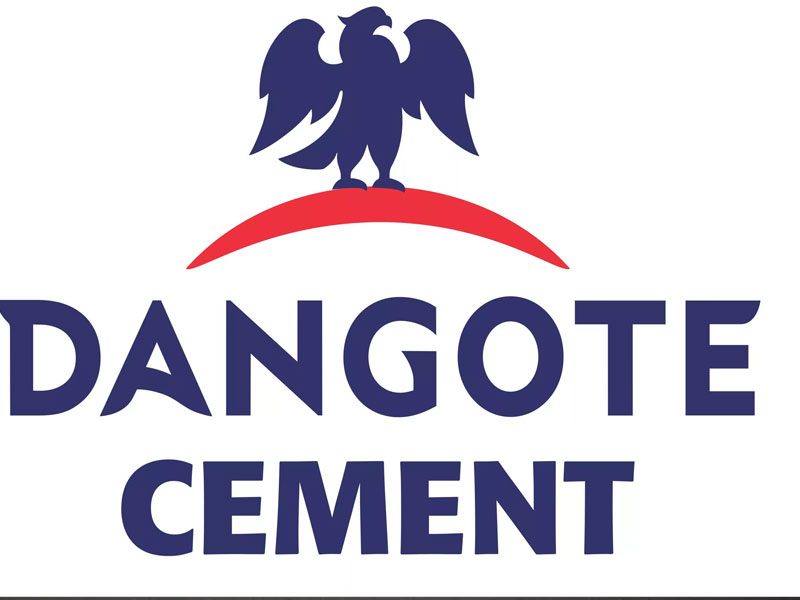
By Modupe Gbadeyanka
A Safety FairPlay initiative designed to drive behavioural change and cultural shift towards safety conducts among its employees has been launched by the Ibese Plant of Dangote Cement Plc.
This programme will drive lasting behavioural and cultural change through an equitable and transparent framework that promotes safe conduct. Built on three core pillars—Recognition, Correction (Coaching) and Discipline.
It rewards positive safety behaviour, ensures consistency in addressing at-risk actions, and encourages open reporting of incidents, near-misses and errors, the company said in a statement on Thursday.
The scheme will be replicated at all the plants of Dangote Cement, marking a significant milestone in strengthening the Company’s safety culture, the organisation added.
The pilot launch of this policy recorded impressive participation from both the management and employees, thus underscoring a shared commitment to safer work practices.
The Technical Director of the cement giant, Mr Anandam Duraisamy, emphasized the strategic importance of the initiative to the business and called on employees to champion a safety culture anchored on fairness, accountability, recognition, and continuous improvement.
He noted that the Safety Fairplay marks a defining moment in the company’s journey toward building a workplace where safety is not just a policy, but a shared mindset—an everyday habit that defines who we are and how we work. We are here to launch an initiative that aims to transform not only what we do, but how we think, act, and respond when it comes to safety.
“Safety FairPlay is about building trust, consistency, and accountability in how we manage safety. When people know that safe behaviour is recognised, risky actions are fairly addressed, and everyone is treated equitably, safety becomes a shared responsibility and a true part of our culture.
“This initiative is about behavioural and cultural change. It recognises that true safety excellence goes beyond equipment, procedures, or compliance; it begins with people-our attitudes, our choices, and our willingness to look out for one another.
“Every incident prevented, every risk spotted, and every safe action taken strengthens our organisation. And that strength comes from you—from each member of our workforce embracing safety as a personal responsibility and a collective value,” he stated.
Also speaking, the Ibese Plant Head of Health, Safety and Environment (HSE), Mr Elvis Akalusi, commended the management for driving the programme and applauded employees for their enthusiastic embrace of the initiative.
He affirmed that the Safety FairPlay Initiative would be fully embedded into the plant’s daily operations, with the full collaboration of all heads of departments.
“This initiative will offer the tools, coaching, recognition, and accountability needed to help each of us make safer decisions. But its success depends on our shared commitment—our courage to consistently do the right thing, even when no one is watching.
“Let us approach this new chapter with open minds and a determination to improve. Let us build a culture where speaking up is encouraged, learning is continuous, and mistakes become opportunities to grow—not reasons for fear,” he stated.
-

 Feature/OPED6 years ago
Feature/OPED6 years agoDavos was Different this year
-
Travel/Tourism9 years ago
Lagos Seals Western Lodge Hotel In Ikorodu
-

 Showbiz3 years ago
Showbiz3 years agoEstranged Lover Releases Videos of Empress Njamah Bathing
-

 Banking8 years ago
Banking8 years agoSort Codes of GTBank Branches in Nigeria
-

 Economy3 years ago
Economy3 years agoSubsidy Removal: CNG at N130 Per Litre Cheaper Than Petrol—IPMAN
-

 Banking3 years ago
Banking3 years agoSort Codes of UBA Branches in Nigeria
-

 Banking3 years ago
Banking3 years agoFirst Bank Announces Planned Downtime
-

 Sports3 years ago
Sports3 years agoHighest Paid Nigerian Footballer – How Much Do Nigerian Footballers Earn


